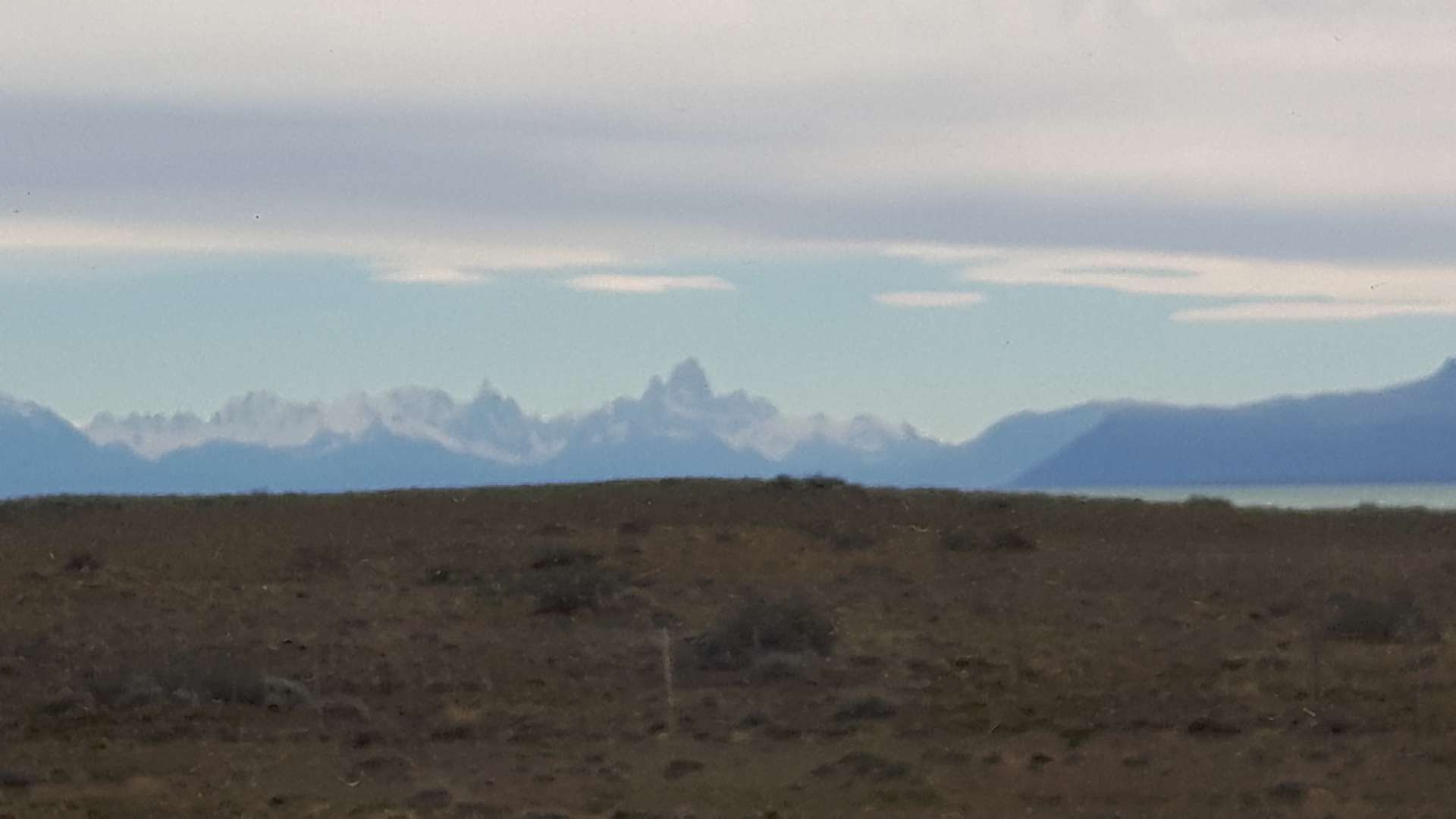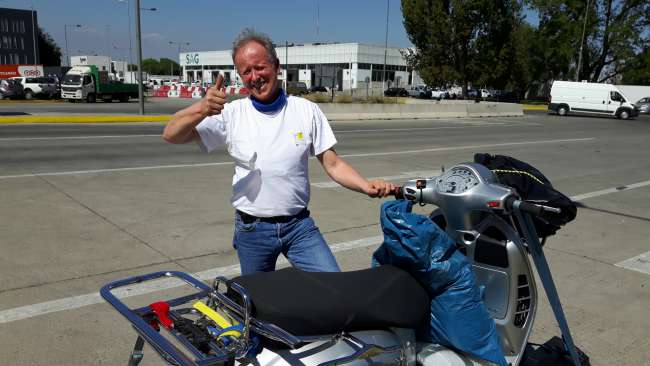ab 23.09.: Riobamba - 2,750 m -
Yayınlanan: 24.09.2017
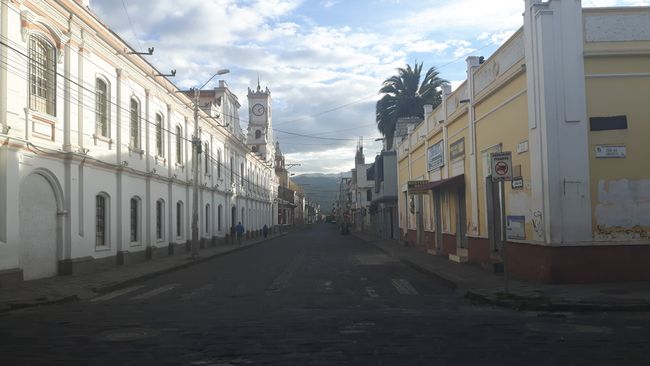
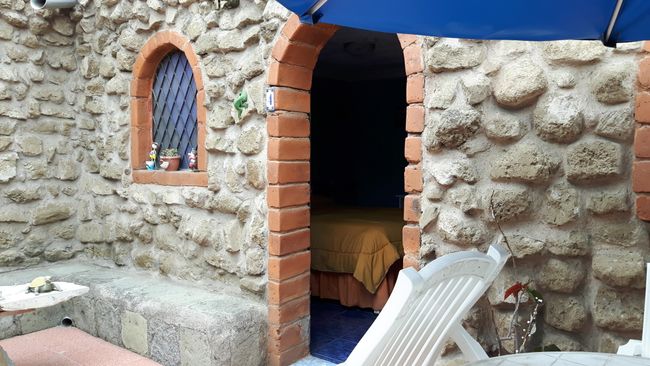
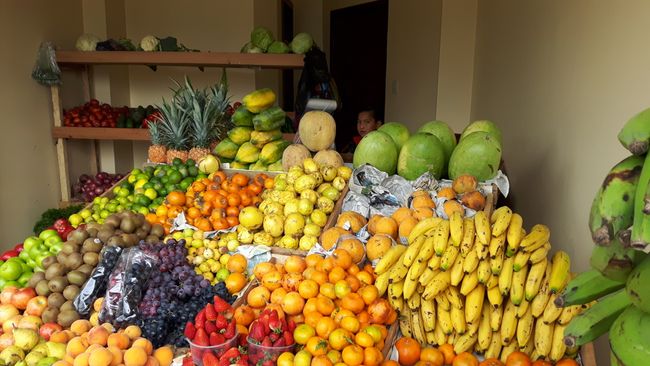
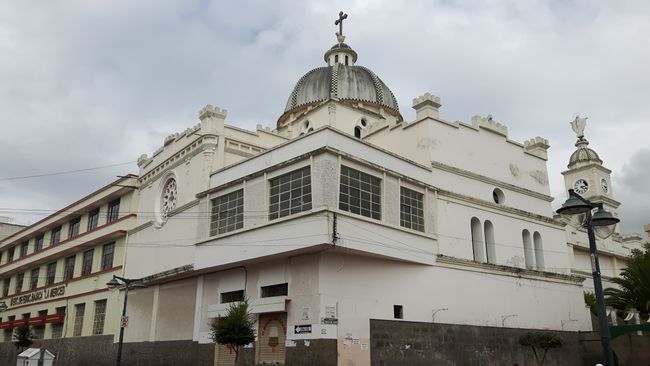
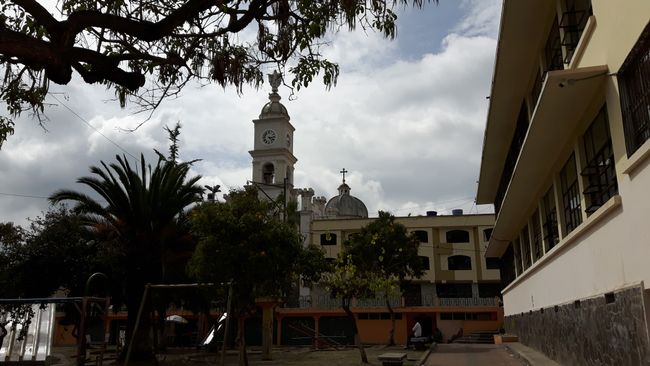
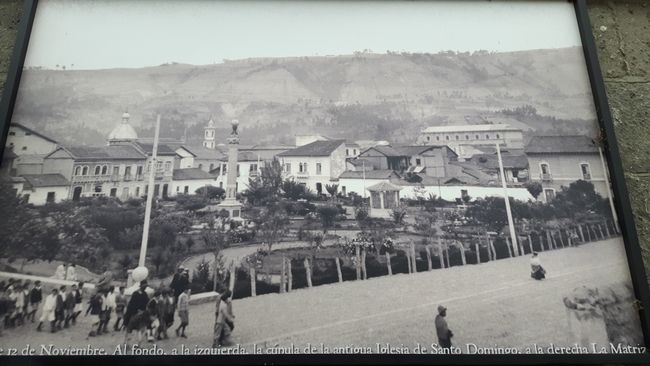
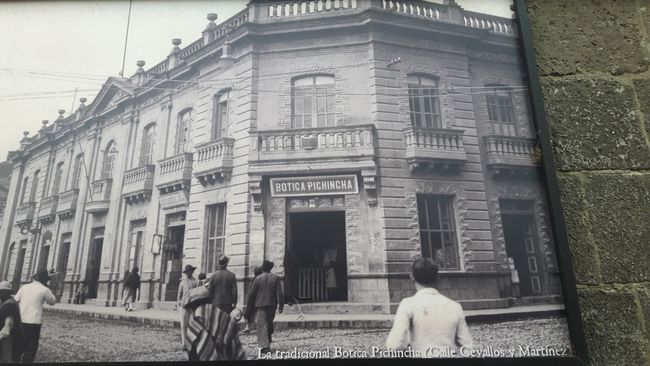
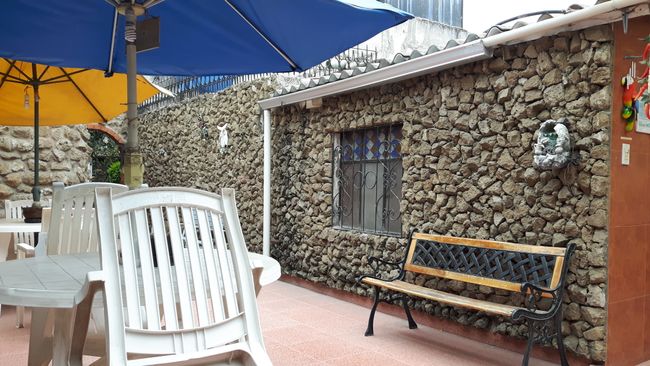
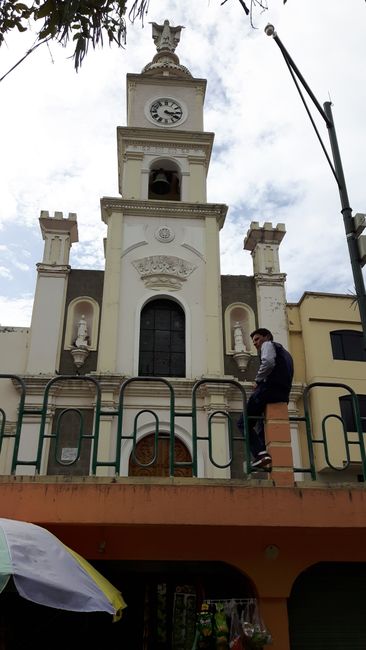
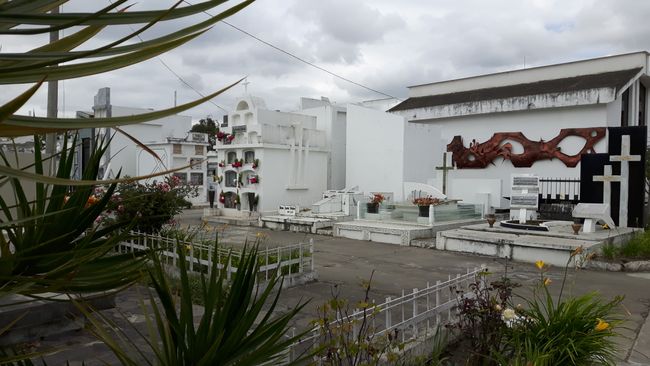
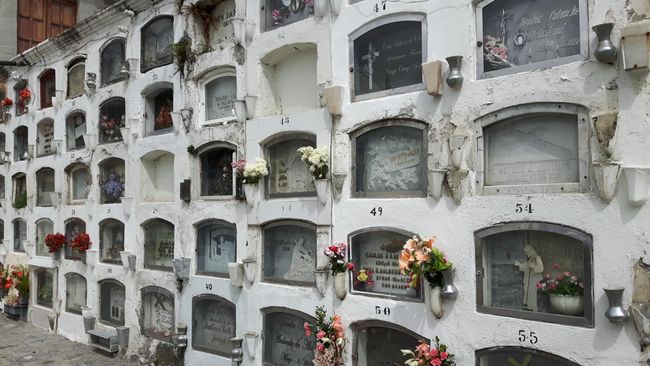
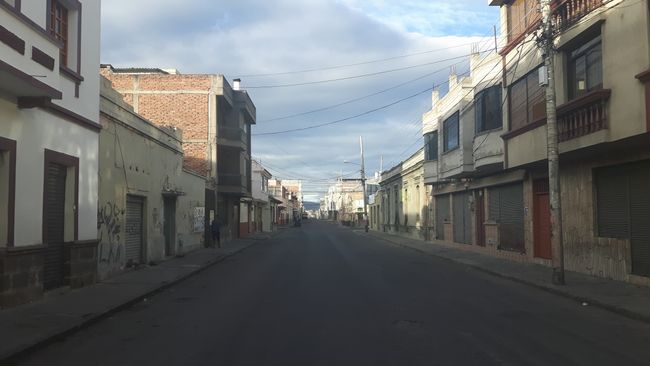
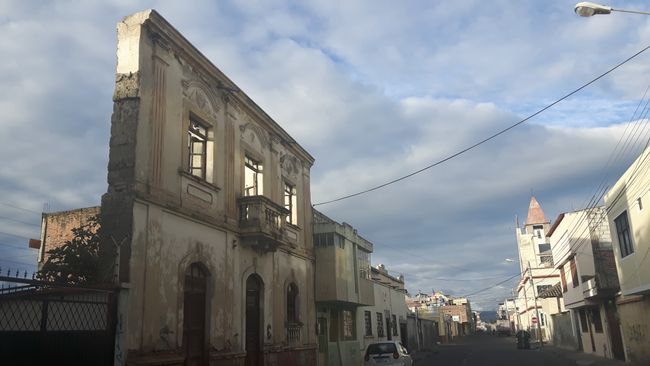
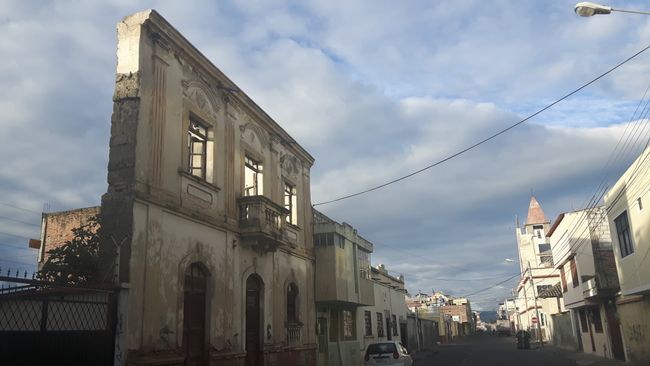
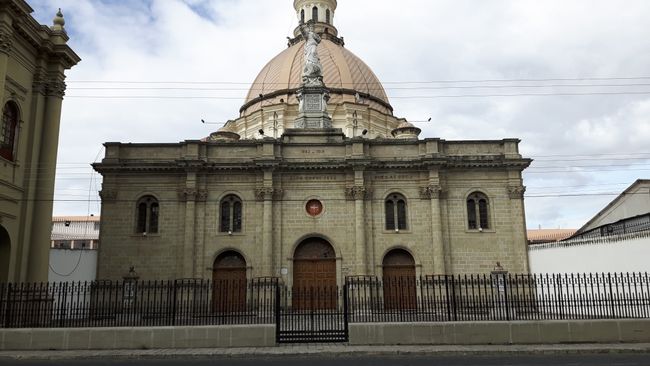
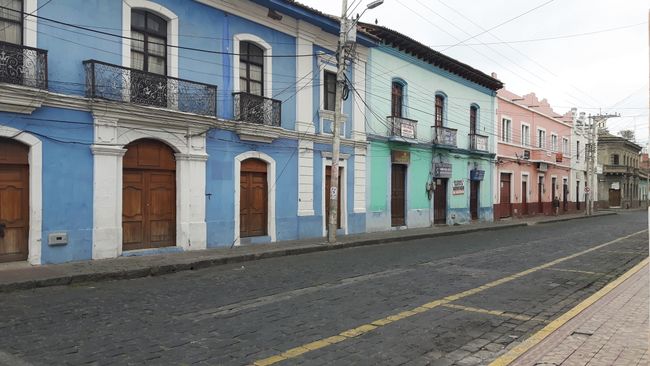
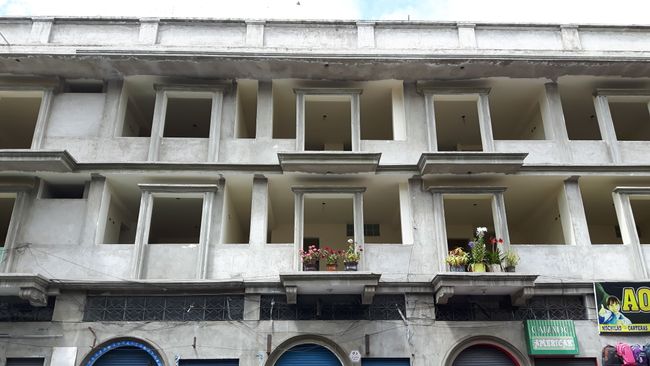
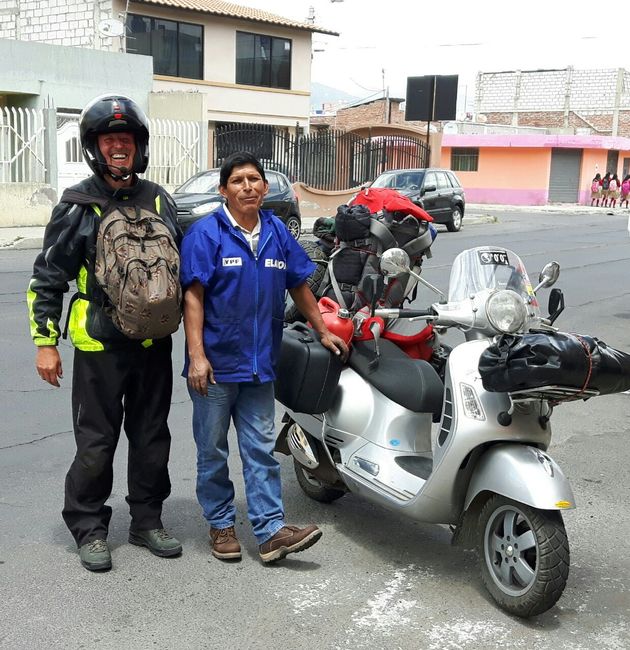
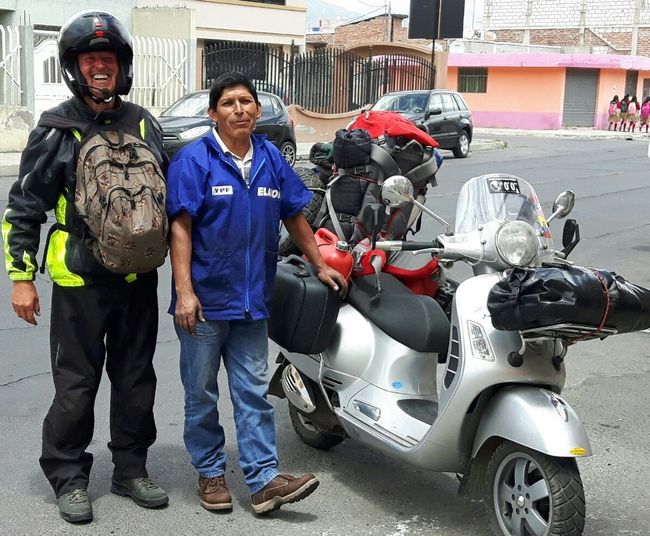
Haberlere kayıt ol
23.09.
I wake up early because I have a few things to do before continuing my journey. I need to get some cash in the city, take photos of the cathedral and fruit store, if possible visit the cemetery, and check on the Vespas.
I don't have to have breakfast in the dungeon, but instead I can have breakfast in the kitchen. Later, a pale-looking night porter joins me and his fit successor, who will take over the reception service.
Agriculture is present everywhere in Ambato - there are many fruit and vegetable stores that don't know where to put their 'goods'.

How long has the family been awake? And that's not all - the critical fruits have to be sorted out over and over again.
In the background, the son...
The cathedral was rebuilt after the earthquake. I can only look at it from the outside. It has a dome and otherwise makes a rather 'practical' impression.

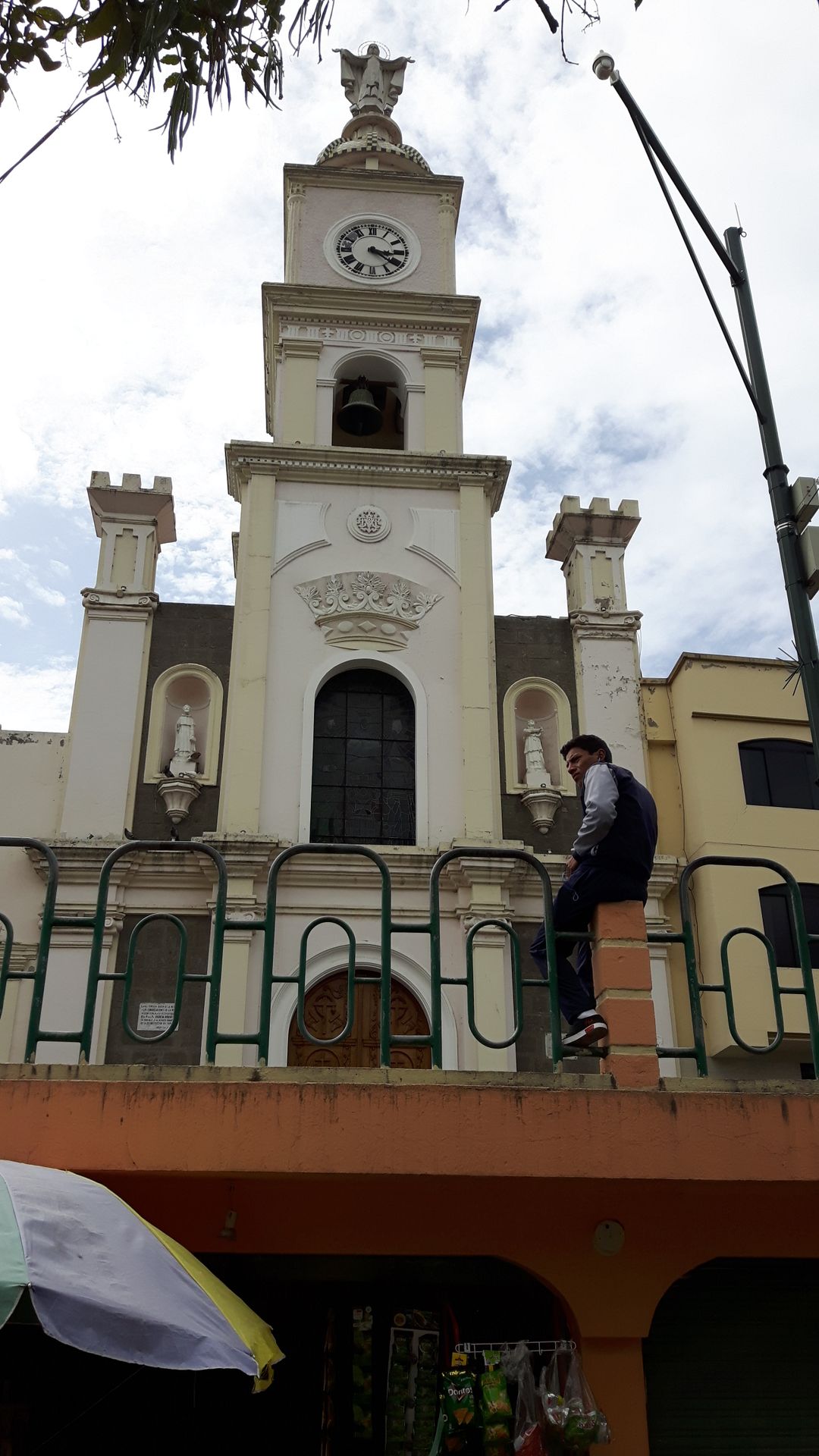
The bell strikes are so fast that I could hardly count. Like in Peru, there is no bell ringing here.
Before the earthquake, Ambato must have been a beautiful and wealthy city. Along the cemetery wall hang photographs that illustrate that.

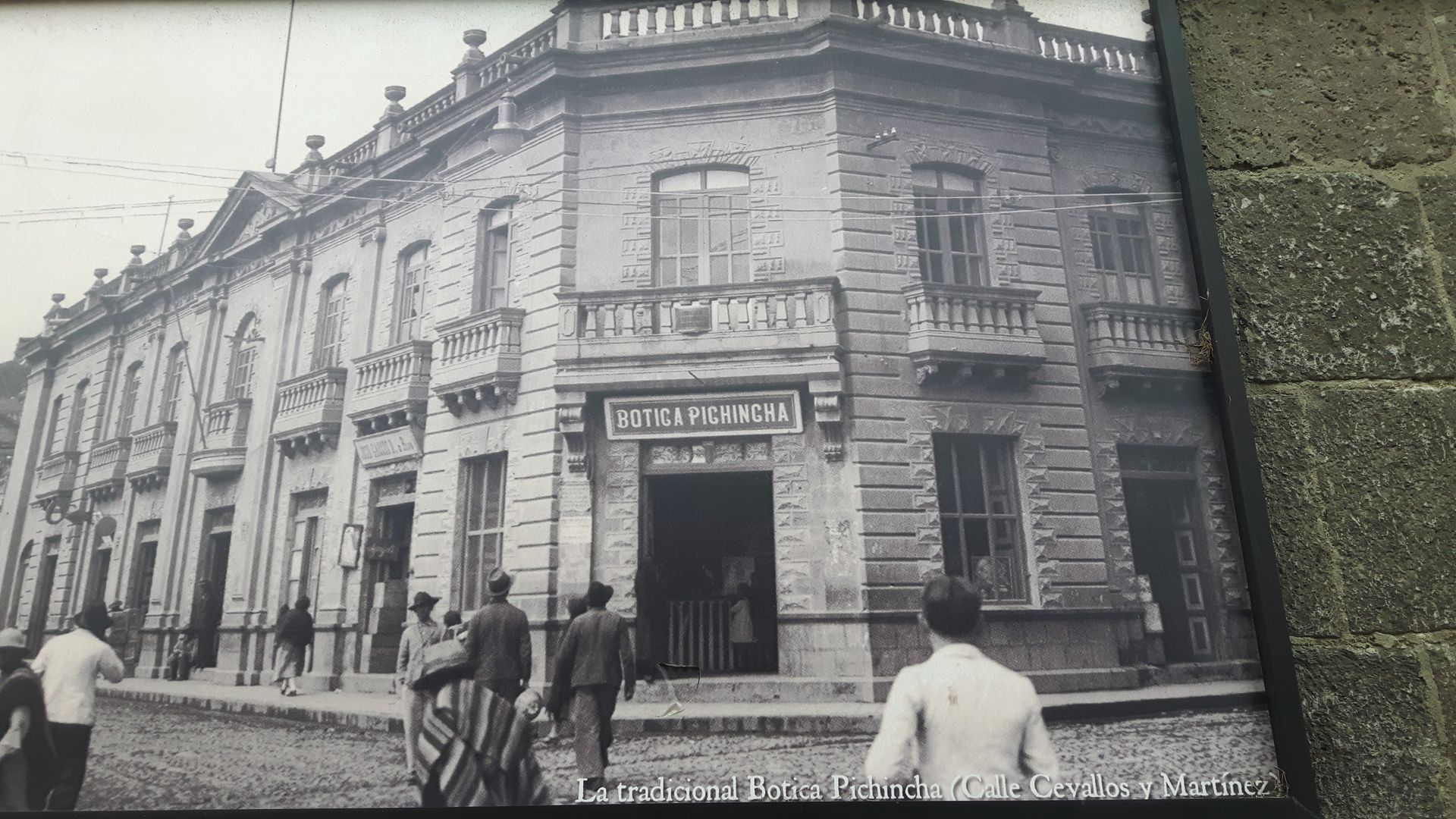
Cemeteries have a strange attraction for me. When I was 12 years old and we went on a cycling tour of Ireland with my parents, the house graves in the overgrown Irish cemeteries impressed me so much that I could push aside the loosely fitted stone slab of a house grave and convince myself of the transience of human bodies.
Cemeteries in South America resemble small towns where one can easily get lost. The 'streets' are flanked by large and powerful mausoleums, each coffin of a family member has its own 'compartment'. Depending on their wealth, the mausoleums are either lavishly or modestly furnished.
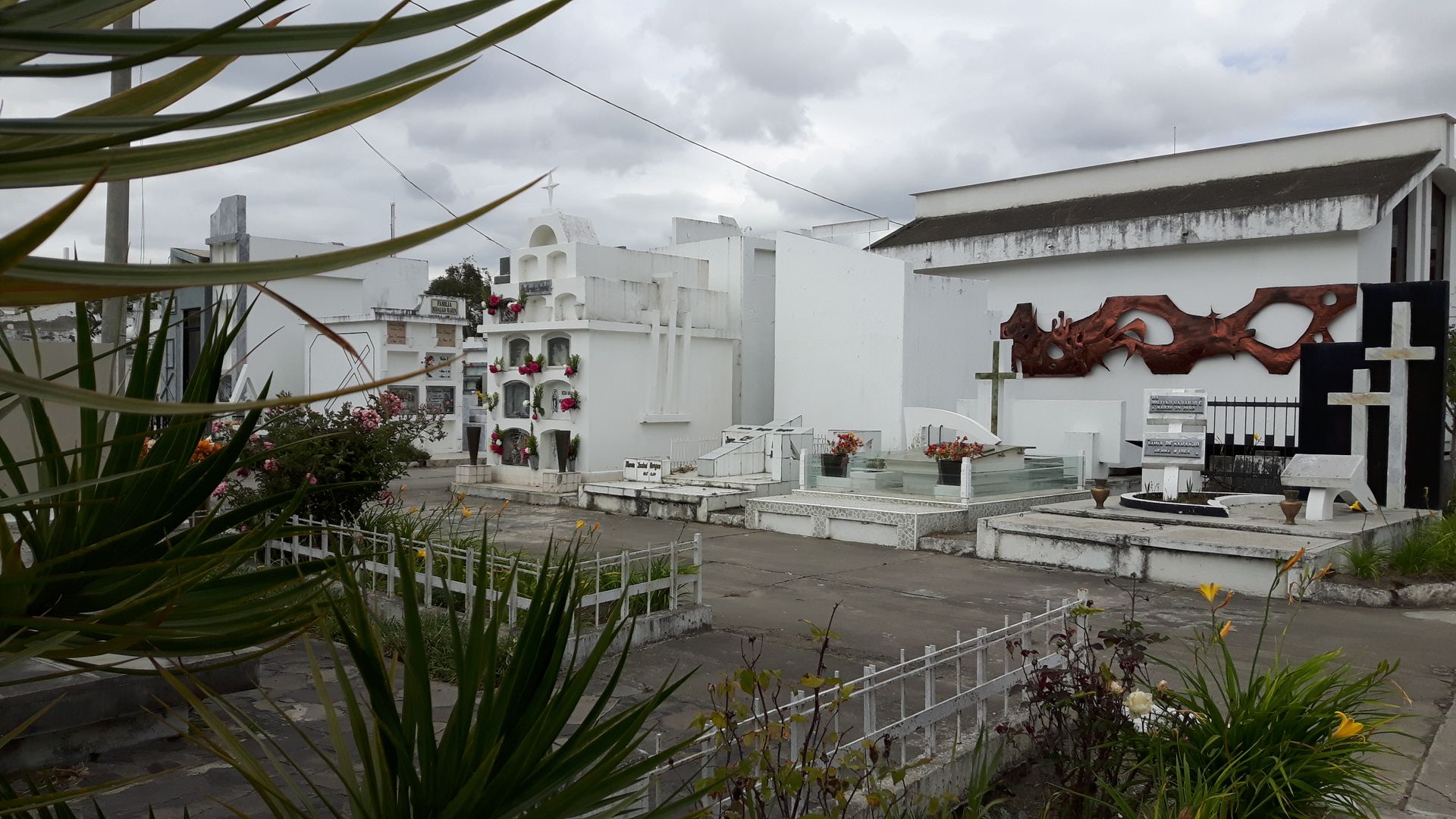
Like small towns...
The members of the Chamber of Commerce have their own mausoleum, which is rather sad. It looks 'uninhabited', the compartments are loosely covered with stone slabs, some are open and serve as storage space for plastic baskets needed for grave maintenance...
Inside the cemetery wall, there are 'compartments' for the urns, with the outside labeled and adorned with flowers.
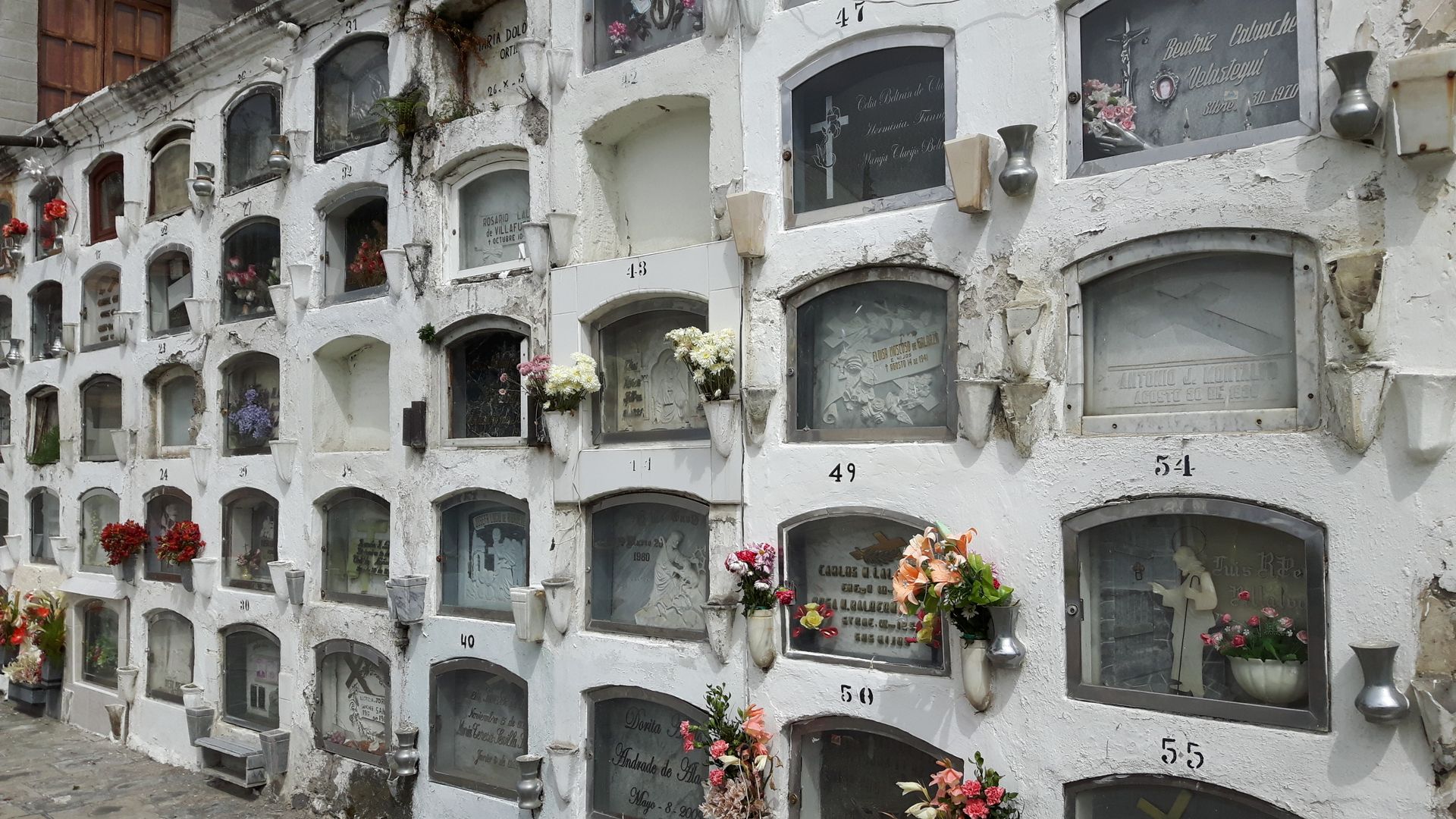
The urn graves
When I enter the cemetery, I notice a hearse in a showroom, which is now only used for highly decorated personalities. An older man stands next to me and proudly explains that the vehicle is over 100 years old.
Back at the hostel, I want to check the spark plug of the Vespas. Depending on its color, I can determine if it is getting too much or too little fuel. The nozzle needs to be adjusted accordingly.
I am surprised that the tool I am working with is getting wet, and then I realize that one of the coolant hoses is leaking tiny drops of water. The problem is quickly fixed. I am glad I noticed it here and not when the temperature gauge is in the red zone...
Today I don't have many kilometers to cover. It's only 70 km to Riobamba. It's like traveling through Switzerland again. In Ambato, it is still sunny and warm, so I ride in a T-shirt, but it quickly gets colder as we go higher.
The Vespa behaves differently. I noticed this on the way from Quito to Ambato and attributed it to the nozzle. But that's not the cause.
The workshop in Quito replaced the drive rollers. They have a big influence on the driving characteristics and acceleration. If the weight is not perfectly balanced on the vehicle, there is a loss of power. And that's exactly what's happening.
The moderate slopes here in the 2 to 3 or three and a half thousand meter range would be a struggle for her in the long run. But then I crawl up on the hard shoulder while the trucks also crawl and pass me with heavy diesel engines.
I now have two options: either I go to a workshop on Monday and have my replacement rollers installed, or I take on a 250 km ride tomorrow to the Vespawerkstatt in Guayaquil. I will visit the workshops here on Monday and then possibly drive to Guayaquil. It's a detour that takes me back towards the coast, but I'd rather do something here than in Peru, where I will face different altitudes and no Vespawerkstätten can be expected.
I arrive in Riobamba at around 2:00 pm and with the help of iOverlander, I find the 'Hostel Oasis', which has a special charm. The garden is beautifully landscaped with figures, lamps, and white pebbles on the flowerbeds, giving it a somewhat kitschy feel. Small elongated houses are set up, each containing rooms with a bathroom and TV. In front of them, there are terraces with garden furniture and umbrellas of different colors, as well as an outdoor kitchen where guests can cook.
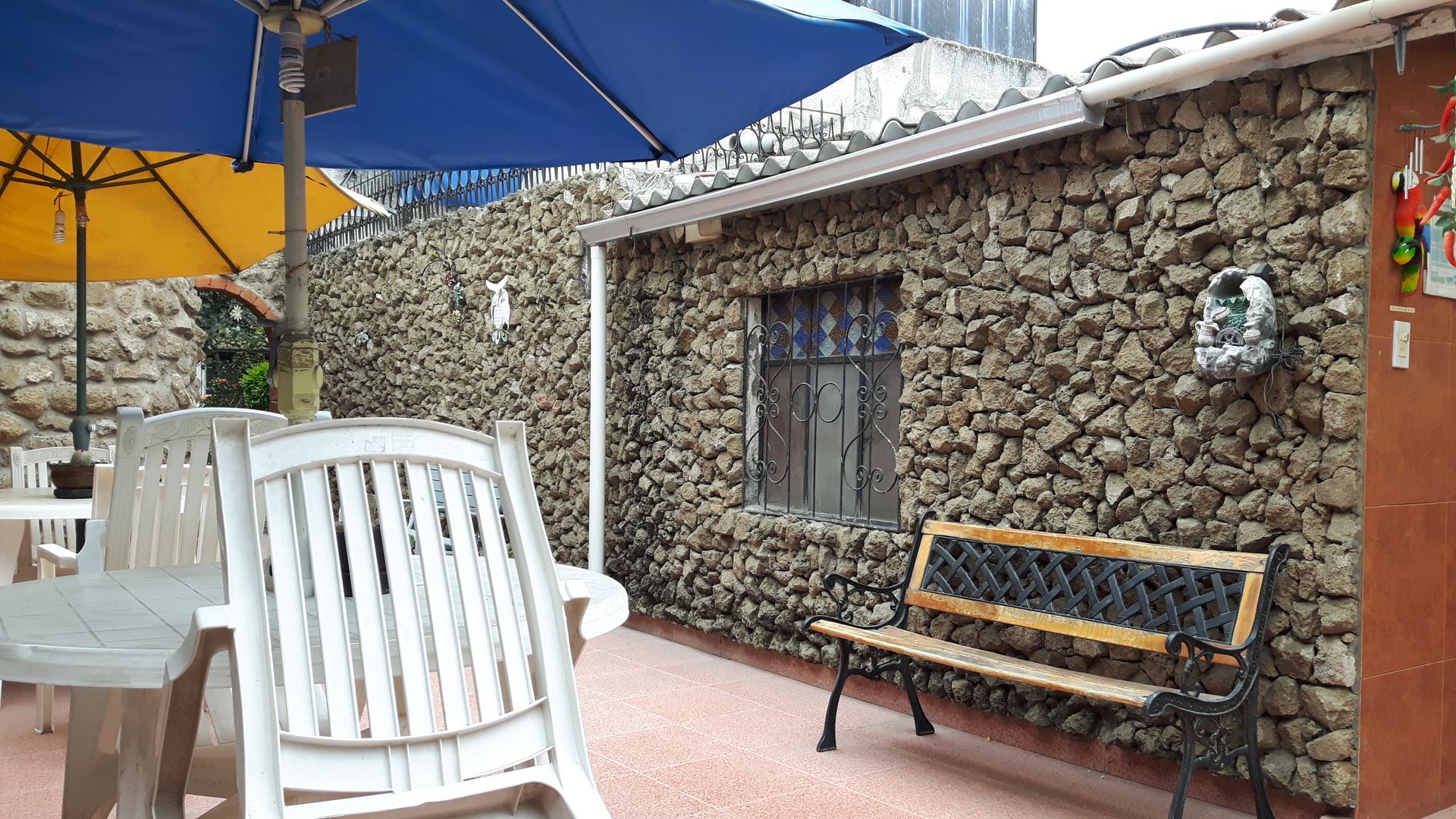

My room
Two small friendly dogs greet the guests, one slightly intrusive and not acting very cat-like long-haired lady, and a black house cat that flees in a dignified manner and only lets itself be stroked later.
There are other guests here, but I don't feel like small talk and instead go on a discovery tour. Riobamba gives me the impression of being untidy. In contrast to Ambato, there is still beautiful architecture here, mixed with ugly buildings. I go to the market, where the market halls are overflowing with fruit and vegetables. There are also food stalls offering Pollo and rice, as well as fish or mashed potatoes prepared crispy in a large pan. They are served with fried eggs, meat, and coleslaw. I let myself be tempted, skip the meat, and sit at a table with a plastic tablecloth, observing the hustle and bustle around me.
Do I want to call what I observe child labor? Or simply put it down to 'mom and dad helping'? The latter doesn't convince me, because I can see from their faces that a lot of pressure is being exerted to sell the goods. And that's not easy, as what they sell is already available in abundance at the stalls. But they also sell white and black socks - even those made by people who are definitely under 14 years old - or fleecy jackets in various colors. 'Old' women - I can't estimate their age anymore, but they are certainly much younger - are equipped with bad shoes and large scarves tied with a knot at the Adam's apple, either loaded with grandchildren or children or, as is the case today, with goods or even filled buckets to bring them to one of the stalls. But that's not enough, both hands are also burdened with heavy loads. They are small, tanned, and leather-skinned women. Where are the men? I ask myself. Since I have been in Peru and Ecuador, I have only seen heavily loaded women. Tough circumstances!
They also sit on the sidewalks and weave colorful ropes or sell plastic goods, fruit and vegetables, or ponchos, blankets, and scarves designed in typical colors.
It is colder here than in Ambato - around 17°C. I still manage to catch a few warming sunbeams and benefit from the proximity to the equator. It doesn't drift to the left behind the next tree, but moves vertically. Then a cloud appears, and I can no longer observe the spectacle further.
I come across a cozy-looking café on the way. A real rarity in cities like this. I go inside and while standing, I inquire about two things: the toilet and a cafe con leche. Both are available. The walls are painted red with black-framed photographs, low-hanging lamps with colored lampshades, polished wooden floors, good and old furniture. Pleasant music plays in the background. Guitar and singing of covered songs from the old days. I will definitely stay here for two hours, read about Riobamba, and later work on my Spanish program.
On the way here to the hostel I pass by the cathedral. It's the only one in South America that is round. There is a church service taking place. And as always, the doors are open and I join in. I will go there again tomorrow to take photos. This round floor plan has a special atmosphere. People sit in a semicircle and look at the altar, but they can also see each other. Music also comes from speakers hanging everywhere. Why don't the churches have organs, why no choirs?
Maybe I will have breakfast in the café tomorrow. I saw that they also offer toast...
Tomorrow is the federal election in Germany. When the day begins here, seven hours later, it will become clear who is going to win. FDP or AfD?
Just before the election, FAZ Online gives a lot of attention to the AfD and the FDP with the headline: 'AfD facing a split?' and 'The dilemma of the FDP'.
24.09.
It's my father-in-law's birthday. Thanks to the WiFi available in his house, we can have a long phone call during their coffee time. It's a surprise, and it has worked out. Just as always, his children and their children and great-grandchildren are sitting at the coffee table. At 86 years old, he is still very fit, rides a bike, and takes care of the apple harvest in the surrounding gardens.
Afterwards, I have breakfast at a crepe restaurant and at 11:00 a.m. local time, I read that the AfD is about to become the third largest party. This really surprises me!
My motivation for the rest of the day is exhausted. I walk through the city, which has a gloomy Sunday atmosphere.
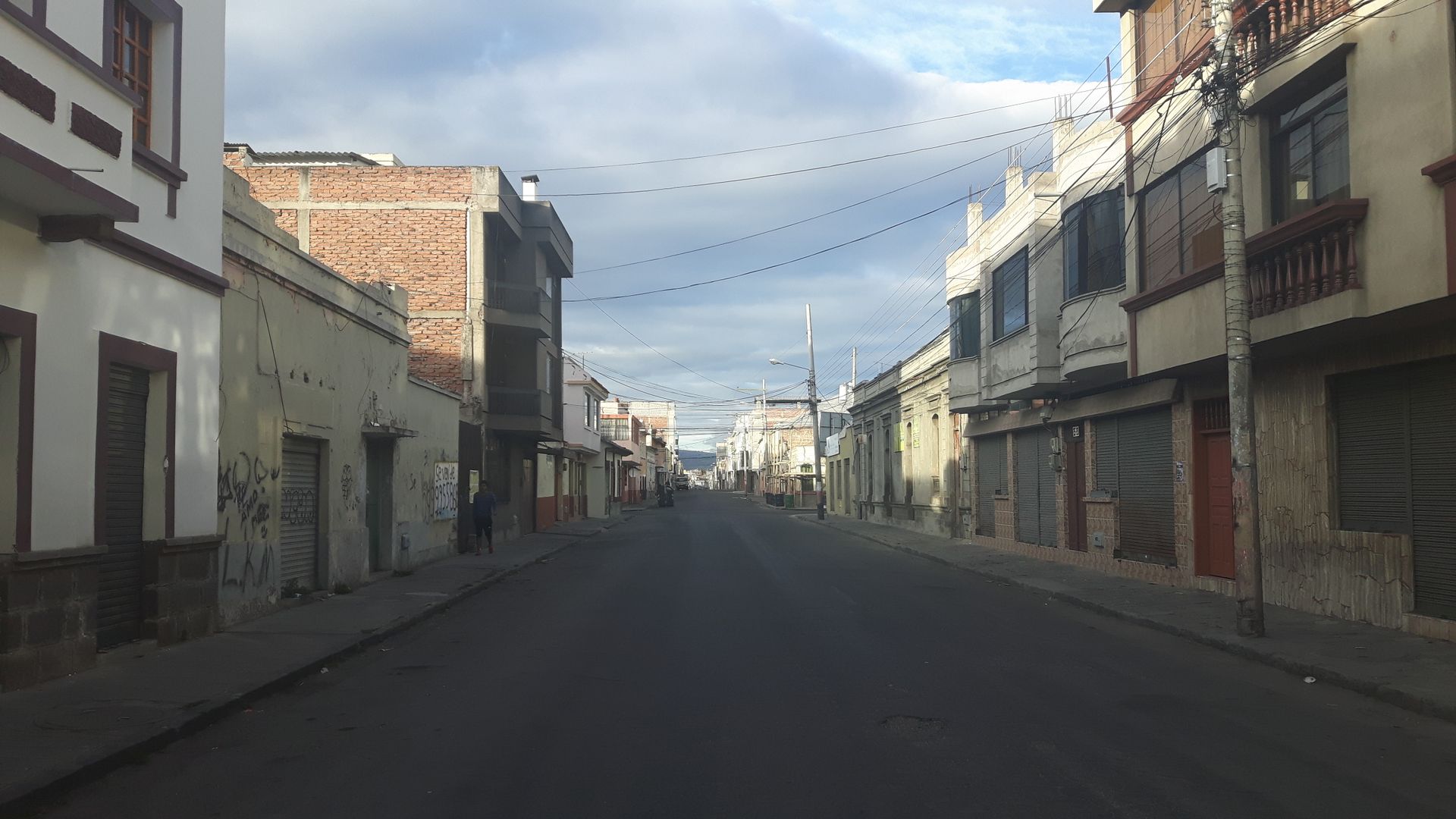
This reminds me of Leipzig in the 80s. Empty streets. Only the coal trucks are missing
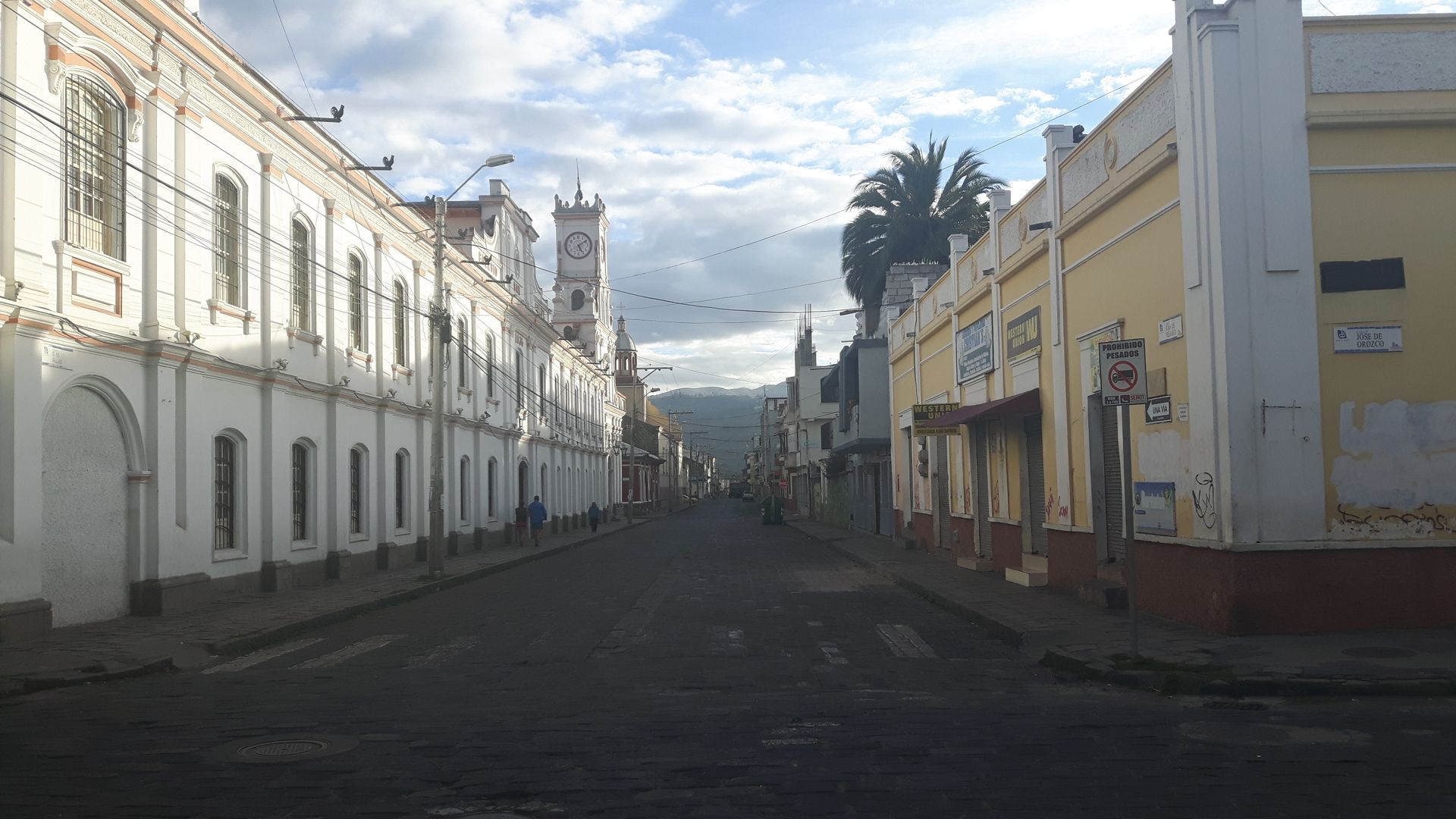
It can't be more contrasting
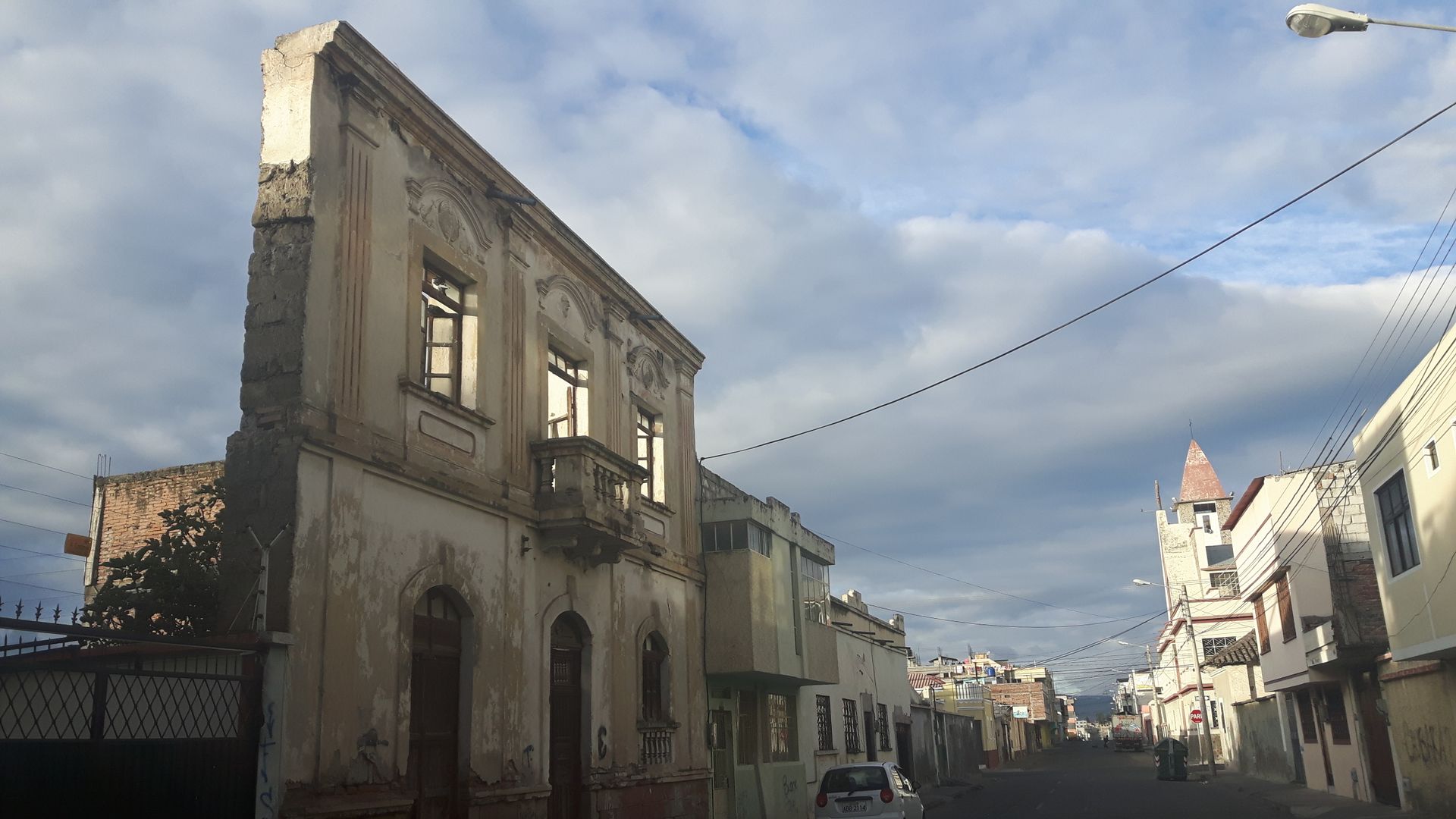
Saving the facade - hopefully the construction will continue soon
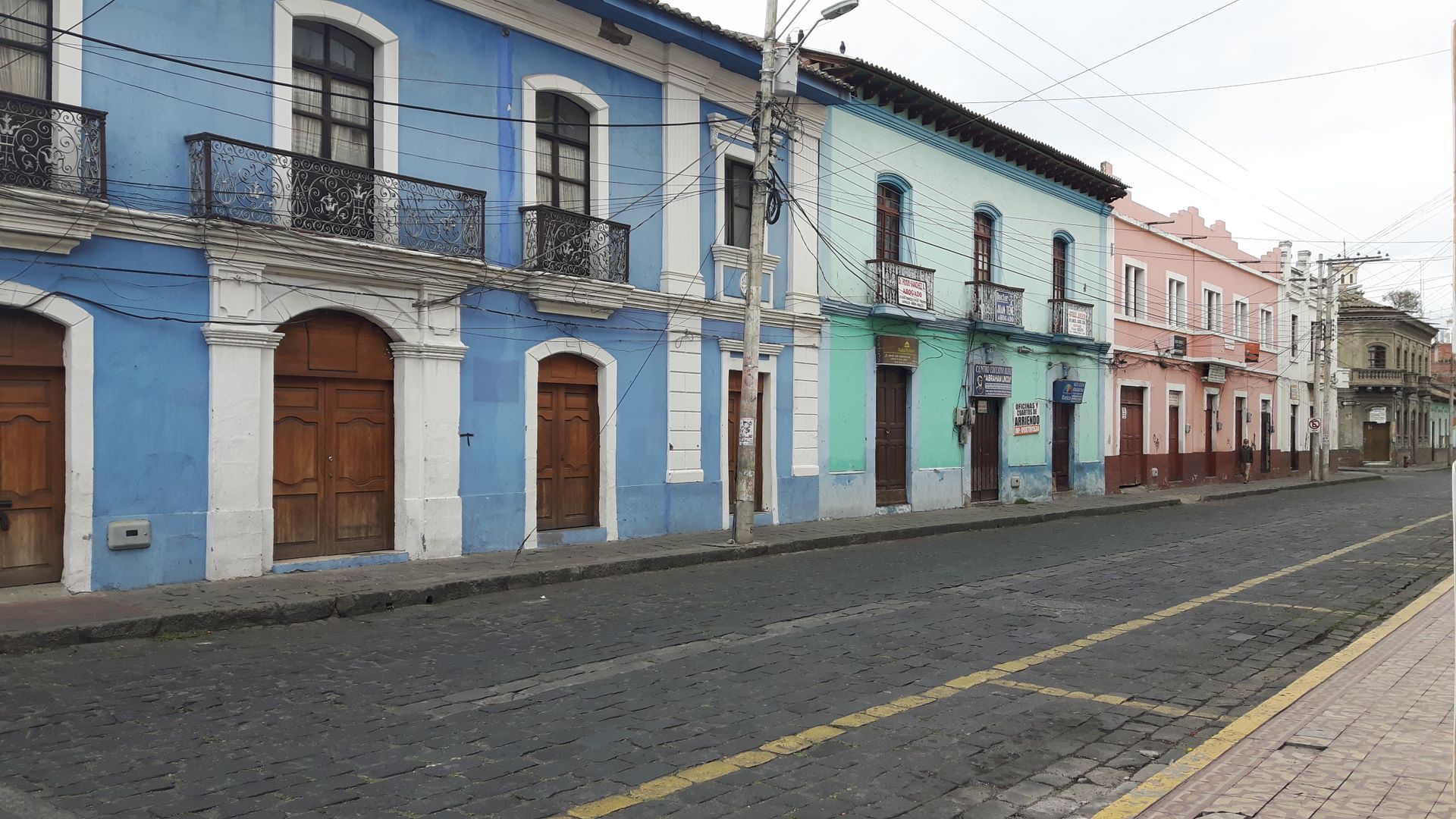

A new building that approaches classical style.
All metal shutters are down, there are few people on the streets, and the large squares are more or less deserted - I have the feeling that the city is taking a break for the new week. Completely the opposite of Tumbes, which I experienced quite differently 14 days ago.
The weather is gray and not particularly warm, and only brightens up in the afternoon. And I keep thinking about the election results. What is going to happen now, and how?
In the evening, as I return, I see a small buffet well-stocked with goodies. Chips, chocolate, candy - later I hear in the kitchen that cream is being whipped.
Haberlere kayıt ol
Cevap

Seyahat raporları Ekvador
